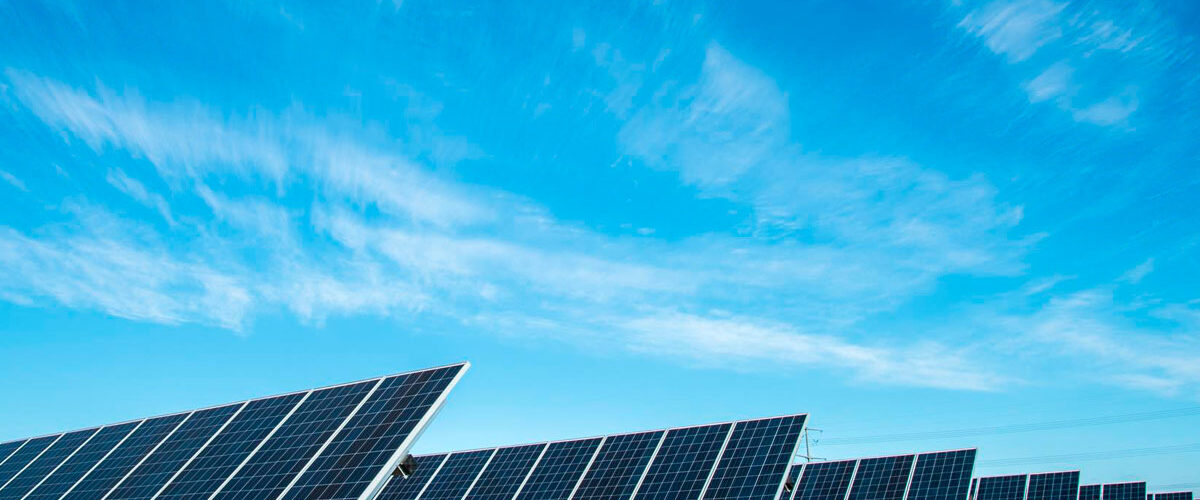UCF was selected to receive four awards from the U.S. Department of Energy’s Solar Energy Technologies Office, the most of any university this year. The awards total $9.64 million — $7 million from the DOE and $2.64 million in matches from UCF.
“These awards amplify UCF’s national leadership in solar energy research since the establishment of the Florida Solar Energy Center (FSEC) in 1975 by the Florida Legislature,” says James Fenton, director of the FSEC Energy Research Center (ERC). “We are committed to advancing the rapid transition to a sustainable energy economy and collaborating with key partners. UCF ‘walks the talk’ by the university’s commitment to being climate neutral by 2050.”
UCF is increasing its leadership in solar research, having received 14 awards from the DOE since 2011 to pursue solar research and development. Additionally, FSEC ERC received a contract earlier this year from the DOE to lead a team that will monitor the performance of floating solar systems around the nation and compare them to their land-based counterparts. The recognition is part of a larger university-wide effort to prioritize energy research, including FSEC ERC and the interdisciplinary Resilient, Intelligent and Sustainable Energy Systems (RISES) faculty cluster, which brings together engineers, computer scientists and public administration experts.
“RISES has seven labs of which four are endowed and externally-supported, including Siemens Digital Grid Lab, Smart Infrastructure Data Analytics Lab, Microgrid Control Lab, Cyber-Physical System Controls Lab and L3Harris-UCF UAV Lab,” says Zhihua Qu, Pegasus professor of electrical and computer engineering and faculty lead for RISES. “These unique labs offer facilities for research and education in fields of renewable energy, smart building and connected communities. Our highly creative people and extensive research capability make UCF a leader in photovoltaic and electric power systems.”
Here is the MSE project the DOE funding will help advance:
Extending the Operational Life of Solar Panels
Principal Investigator: Kris Davis, Assistant Professor of Materials Science and Engineering
Total amount awarded: $2.51 million
Most solar panel manufacturers offer warranties up to 25 years with one caveat: their performance will decrease over time, scientifically referred to as the degradation rate. But what if there was a way to prolong their optimal performance?
That’s where the DOE-funded project led by Kris Davis comes into play. Davis and his team are developing new imaging techniques to study exactly what wear and tear occurs as a result of being exposed to various elements. Partnering with big utility companies such as the Orlando Utilities Commission, NextEra Energy and Southern Company, they will visit existing field sites and develop techniques to take ultraviolet and infrared images to learn what’s happening under the surface level. They will also bring panels that are underperforming back to their lab and perform what Davis calls an autopsy on them.
“Using different nanoscale characterization techniques, we hope to understand the root cause of these problems and be able to communicate them to the industry,” says Davis, who is a member of the RISES faculty cluster. “In some cases, it may be a defect that’s already well known and we can bypass the whole process. But we’re finding there are a lot of defects and people aren’t really sure what’s causing them. That’s where our project can offer a lot of value and ultimately help bring down the cost of solar energy.”
This project is one of five related DOE-funded projects that Davis is leading — three of them doing similar characterization assessments and two developing new materials — all geared to extend the life of solar panels. He will be working with UCF team members Mengjie Li, postdoctoral research scientist; Dylan Colvin ’19, materials science and engineering doctoral student; Nafis Iqbal, materials science and engineering doctoral student; Hubert Seigneur ’01 ’03MS ’07MS ’10PhD, associate research scientist at FSEC Energy Research Center; Sudipta Seal, professor and chair of materials science and engineering; Tamil Selvan Sakthivel, research scientist; and Titel Jurca, associate professor of chemistry and member of the Renewable Energy and Chemical Transformation (REACT) faculty cluster.
- Written by Laura Cole for UCF Today
- Nov. 3, 2020
